
Guest contributor: Richard Gilbert
Gardening and Being
categories: Cocktail Hour
11 comments
When your ancient essay surfaces and reproaches you— “Gardening and Being” was published in Orion 20 years ago
As I look at it, you might as well ask, Does a sunset pay? In a certain sense, it is a sort of profanation to consider if my garden pays, or to set a money value upon my delight in it. Shall I set a price upon the tender asparagus or the crisp lettuce, which made the sweet spring a reality?”
—Charles Dudley Warner, My Summer in a Garden
While editor of The Hartford Courant in 1870, author and essayist Charles Dudley Warner had the cunning idea—far ahead of its time, a concept memoir—to spend that growing season gardening. Not for vegetables but for joy. He prosecuted a thesis that gardeners are dreamers engaged in a spiritual activity. As he wrote, 144 years ago now, “To own a bit of ground, to scratch it with a hoe, to plant seeds and watch their renewal of life,—this is the commonest delight of the race. To dig in the mellow soil—to dig moderately, for all pleasure should be taken sparingly—is a great thing.”
I used his words as a springboard into an essay, “Gardening and Being,” for the summer 1994 issue of Orion. I explained how gardening had grounded me as a person, how its lessons and discipline had been my true crop. The short piece, 1,079 words, was my first personal essay in a slick national magazine. It also marked the seventh anniversary of my and my wife’s purchase of a featureless rectangle of land, an Indiana soybean field, that we’d transformed. By then our white faux colonial farmhouse overlooked our pond, a shimmering blue acre of water, and was embraced by greenery—hundreds of trees and shrubs, gardens of vegetables and perennial flowers. As if endorsing our efforts, the city built a state-of-the-art elementary on our road just in time for our daughter and son to start school.
In Orion I recalled the genesis of our own private Eden:
There was not a tree or a welcome blade of grass on the place. Our plot was similar to countless raw tracts in suburbs across America. That first spring our infant daughter accompanied us in a blue backpack as we slowly planted rows of pines; our Labrador retriever bounded across the tender ground following country smells. Those trees barely show up in the earliest photographs of our land. The red pines were about a foot tall, and the Virginia pines were barely six inches.
For the gardening column I was writing for our local newspaper, I’d just taken a picture of that daughter, Claire—“a big second grader,” as she crowed—standing beside those pines, which towered over her. Many of the Virginia pines were twelve feet tall, some pushing fourteen. We’d buried our Labrador, Tess, beside the pond she’d loved. A writer in my Sunday school class, Scott Russell Sanders, admired my column and put me in touch with Orion, which was looking for short essays for its “Editorial” feature at the front of the book. I wrote a new version, and a gifted young Orion editor, Emily Hiestand, now a successful author and photographer, whipped my prose into shape. I’d never experienced such microscopic editorial attention.
Remembering where I found Charles Dudley Warner, however, hovers now almost out of reach. I probably learned of him from Michael Pollan, who quotes Warner briefly in his first book, Second Nature: A Gardener’s Education, which I’d reviewed. Guessing that provenance helps me retrieve who I was when I quoted Warner two decades ago: a guy from a Florida beach town trying like mad to orient himself in a foreign land—exotic Indiana—where even the ubiquitous maples seemed strange.
Certainly I recall the timeline that followed that essay. Two years after its publication, we sold our dream place, created with such effort and joy, and started over in Ohio. We left for career reasons, though I see now that we were unaccountably restless too. In Ohio we got more land, and I got ambitious about agriculture. I was chasing my boyhood fantasies, kindled in the wake of my father’s loss of a farm. My becoming a “real farmer,” like Dad, almost derailed me as a writer and wrecked me physically. But it was an adventure I cannot regret. As chronicled in my forthcoming Shepherd: A Memoir, a lifelong dreamer had acted at last. He’d made peace with his father, and learned who he was.
When I remembered the Orion essay recently, I had to order a copy of the issue; my files, having been moved repeatedly since it appeared, were a wreck. I’m still a gardener, so not quite post-agrarian, but currently live in town. Reading my essay after so many years, I’m startled by how much Warner was speaking to me.
No mere bit player for my essay, he was my very muse—but I couldn’t yet hear him. If I had, I’d have stayed put, stayed small, and hoed my Hoosier plot. All the same, his soulful inquiry was indeed my topic; it’s just that I wasn’t finished with it, or it with me. My little essay, I see now, wasn’t a final word but a first step.
In my memoir, I quote Warner again. At that point we’ve just been through a financially and emotionally disastrous renovation of a farmhouse. I’m heading hopefully into my first lambing season. Warner says:
In order to enjoy agriculture, you do not want too much of it, and you want to be poor enough to have a little inducement to work moderately yourself. Hoe while it is spring, and enjoy the best anticipations.
As it turned out, my first lambing—indeed, that entire growing season—was a disaster of biblical proportions: genetic defects, heat, locusts, storm, and drought. And soon a vile disease would emerge among the sheep, I’d get seriously hurt trying to save a dying ewe, and we’d have to sell some magically beautiful land.
All the same, I decided not to quote Warner’s following sentence—
It is not much matter if things do not turn out well.
—because for us they did, in the end.
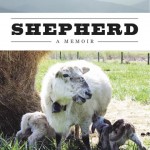 Richard Gilbert’s Shepherd: A Memoir will be available as of April 15, 2014 (Michigan State University Press). There’s a link to “Gardening and Being” on his blog’s Selected Prose page.
Richard Gilbert’s Shepherd: A Memoir will be available as of April 15, 2014 (Michigan State University Press). There’s a link to “Gardening and Being” on his blog’s Selected Prose page.
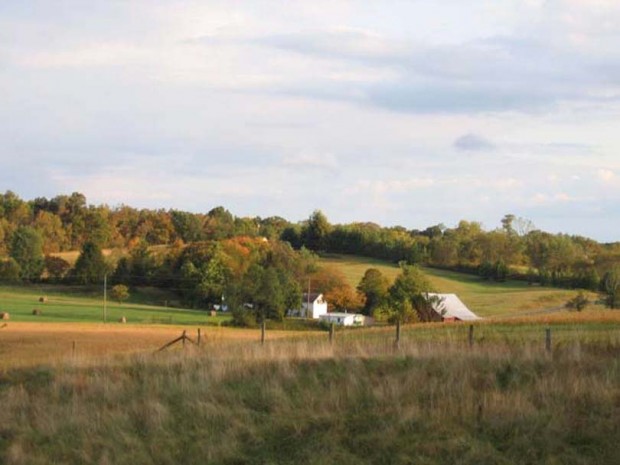
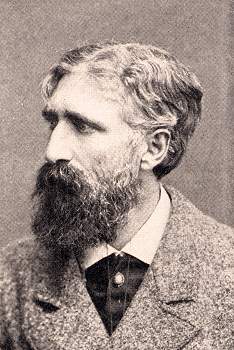
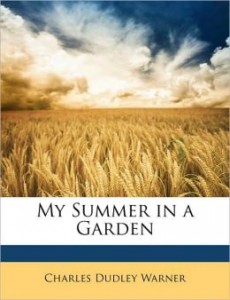
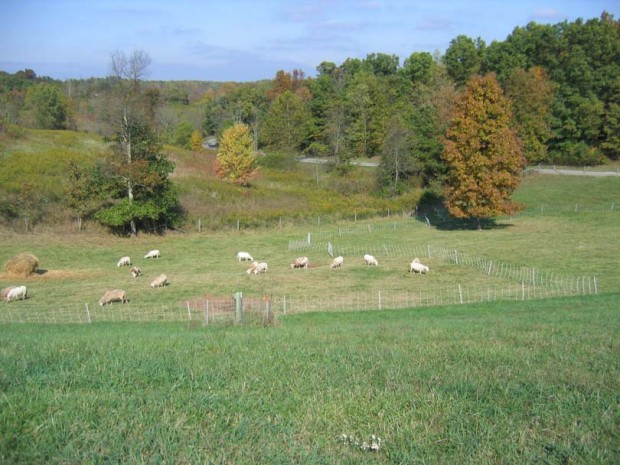

Richard, the transformation of your Bloomington property was a wonder to behold. So much change and development in what seemed so little time. I was shocked when you decided to leave it: you had invested so much of yourself there. How wonderful that was not the culmination but a stepping stone.
This morning’s e-mail from Amazon tells me that Shepherd will arrive in just a week. Exciting.
Thanks, Dave. I would say, “Easy come, easy go,” except it wasn’t! Worked like a dog and loved every minute of that place.
Thanks, Richard — and Warner — for reminding us how important gardening is and what’s, in fact, important about it. It’s a true farmer who realizes “It is not much matter if things do not turn out well” because how often that’s the outcome. It’s our engagement in nature that matters. A timely thought. I think I’ll turn off my computer and go weed my arugula.
I wish you could weed mine while you’re at it. We have had the coldest, wettest spring in memory here in Ohio. Only two barely balmy days. I haven’t been twitterpated even once. But the daffodils I planted last fall are up! So I didn’t waste my money with that White Flower Farm order after all.
And the forecast is for El Nino this year, Pacific warming, and that’s 40 percent of the earth. And that means it could be the warmest year in recorded human history. Is it possible after last winter/this spring? I reckon it’s going to be hot this year. Even if El Nino hits in 2015.
Let me just quote Wendell Berry (which I’m prone to do): “We learn from our gardens to deal with the most urgent question of the time: How much is enough?” I actually think we learn more than that from gardens, and I learned a helluva lot from reading your book, Shepherd. That first step was a doozy…but aren’t you glad you took it!
Ah, Candy! You got galleys. Wait till you see the finished product . . . But thanks for taking the time to read and comment.
Richard,
I so admire that you plucked out of your files something written 20 years ago and have had whatever it takes to keep the embers of Warner’s ideal alive. How many of us can say that we have remained true to an ephemeral idea that inspired us 20 years ago?
I am looking forward to reading “Shepherd” not only for its own sake, but as a testament to how a life should be lived. Bravo! John
Thank you, John—though I think I’m really more of a cautionary tale!
Thank you, Richard and Charles Dudley Warner, for reminding us to relish the joy and spiritual growth from our creative pursuits. If the crop yields vegetables, that’s a bonus – not the reason we as writers go back to “exotic Indiana” or elsewhere on the page.
Beautiful retrospective. Our “themes” are there, waiting for us to notice them. I want to read this book.
Thank you so much, Beth.